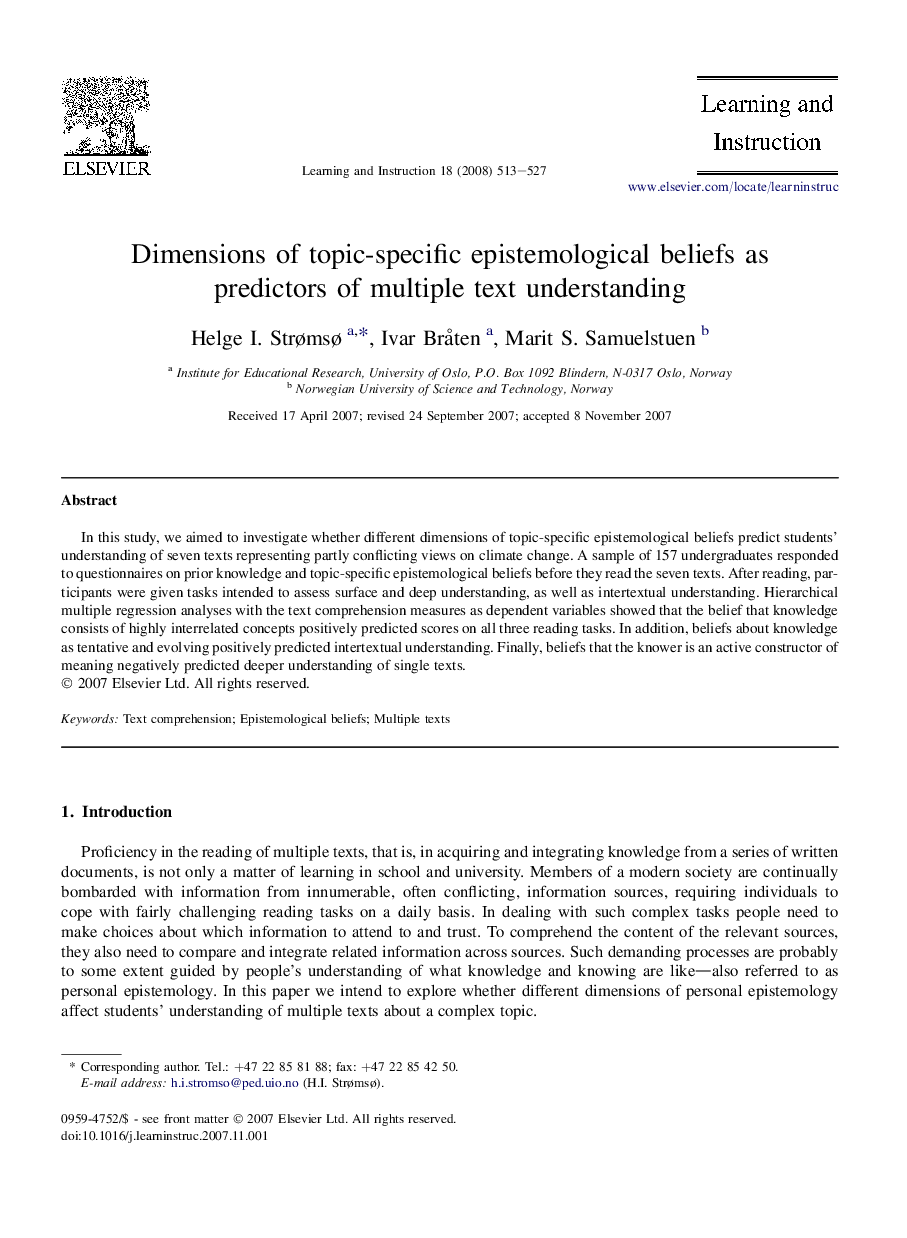| Article ID | Journal | Published Year | Pages | File Type |
|---|---|---|---|---|
| 365937 | Learning and Instruction | 2008 | 15 Pages |
In this study, we aimed to investigate whether different dimensions of topic-specific epistemological beliefs predict students' understanding of seven texts representing partly conflicting views on climate change. A sample of 157 undergraduates responded to questionnaires on prior knowledge and topic-specific epistemological beliefs before they read the seven texts. After reading, participants were given tasks intended to assess surface and deep understanding, as well as intertextual understanding. Hierarchical multiple regression analyses with the text comprehension measures as dependent variables showed that the belief that knowledge consists of highly interrelated concepts positively predicted scores on all three reading tasks. In addition, beliefs about knowledge as tentative and evolving positively predicted intertextual understanding. Finally, beliefs that the knower is an active constructor of meaning negatively predicted deeper understanding of single texts.
